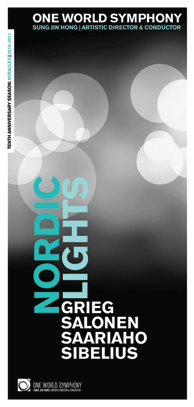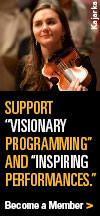Nordic Lights
One World Symphony
Sung Jin Hong, Artistic Director and Conductor
One World Symphony Vocal Artists
Christopher Johnson, Pianist
Edvard Grieg: Piano Concerto in A minor, Op. 16 (1868)
Esa-Pekka Salonen: Foreign Bodies (2002, Brooklyn Premiere)
Kaija Saariaho: Parfum de l'instant, Quatre instant (2002, Brooklyn Premiere)
Jean Sibelius: Three Songs — The North, First Kiss, The Tryst (1904)*
*World premiere orchestration and arrangement (2011) by Sung Jin Hong
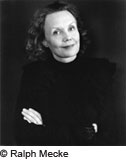
Kaija Saariaho (born 1952) studied composition in Helsinki, Freiburg and Paris, where she has lived since 1982. Her studies and research at IRCAM have had a major influence on her music and her characteristically luxuriant and mysterious textures are often created by combining live music and electronics. Although much of her catalogue comprises chamber works, from the mid-nineties she has turned increasingly to larger forces and broader structures, such as the operas L’Amour de loin and Adriana Mater and the oratorio La Passion de Simone. Ms. Saariaho’s recording of L’Amour de loin recently won the prestigious Grammy Award for Best Opera Performance
“Quatre instants” was originally written for soprano and piano. Trying to extract the colours I had in my mind from the piano, and at the same time adapting its vast expressive scale to the diminutive vocal lines, reminded me of the work of a jeweller, who, with the help of a loop, creates rich, microscopic details. I had always planned to make an orchestral version of these songs, yet when I finally did, it was not so easy because, in reducing everything onto the piano, I had tried hard not think in orchestral terms. But I wanted in the new version to achieve the same very clear, bright sound as in the original, and I’m pleased that, because this version was made for a Classical-sized orchestra rather than a big Romantic one, it retains some of the piano version’s chamber-music feel, so that the phrases we hear from the orchestral instruments – from the wind, and so on – are, in a way, in dialogue with the singer. The two versions are not completely similar, however: there are tiny differences of details. In the original, for example, the singer starts the third song, while here it begins with a phrase on the flute. In both versions, though, the instrumental writing is integral to the overall texture and not just an accompaniment to the singing. Rather, it is a musical extension of the text that sometimes develops several musical ideas simultaneously. — Kaija Saariaho
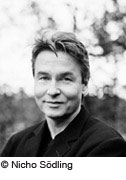
Esa-Pekka Salonen (born 1958) has progressed through a number of stylistic phases during his career as a composer. In the late 1970s when he was studying with Rautavaara at the Sibelius Academy, he wrote in a lyrical, neo-Romantic style; a few years later, after studying in Italy with Donatoni and Castiglioni, he adopted strict serial principals, notably in his Yta series of solo pieces. For a number of years after his conducting career took off in 1983, he had little time for composition, but began to write once again in the mid-1990s, mostly in larger forms, with a new sense of energy, joie de vivre and orchestral brilliance. Maestro Salonen has won Gramophone and Grammy awards as a conductor.
“Foreign Bodies” is scored for a very large orchestra; in fact the largest I have ever used with quadruple woodwinds, six horns, two harps, four percussionists and organ. As the title “Foreign Bodies” suggests (it actually suggests lots of things), the music is very physical in expression, almost like an imaginary scène de ballet. The title also refers to the fact that I am less concerned about the purely cerebral aspects of music and more interested in the physical reality of the music, i.e. the sound itself, than before. Also, more than two decades of conducting have helped me to think in a simpler, more direct way than before.
“Foreign Bodies” consists of three movements: I. Body Language - II. Language - III. Dance
The first movement is essentially a study of mechanical motion. The music is often machine-like in its relentless movement. These machines are not watchmaker’s precision instruments but huge and extremely massive things that consume enormous amounts of energy. In the process of Body Language the machines sometimes become other machines through gradual transformation. Sometimes the motion changes suddenly and drastically, but mostly the new machines start growing inside the old one unnoticeably not unlike a virus or another foreign body within a host organism. The second movement, “Language” is base on a choral song I wrote to a poem by the Swedish poet Ann Jäderlund,“Deep Within The Chamber”. The third movement, “Dance” is precisely what the title suggests: a monotonous, shamanistic dance. Even this short movement contains a virus: the persistent triplet figures in the horns cause the entire rhythm to collapse, and the music shifts to a lower gear rather dramatically. At the end I bring back the Ritornello-theme from the first movement in the brass, enforced by the organ. — Esa-Pekka Salonen
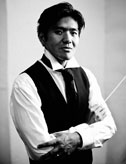
Composer-Conductor Sung Jin Hong is the artistic director of One World Symphony. Mr. Hong’s upcoming composition commissions include a piano concerto for Lloyd Arriola, a chamber work for Project 60/40, world premiere orchestration of Messiaen’s Quatuor pour la fin du temp, Sidewalk Sketches for September Concert Foundation, and the symphonic poem Eye of the Storm for audience and One World Symphony. Mr. Hong’s guest conducting engagements include Lyrique-en-mer in France, Stadt Wien Konservatorium in Vienna, Royal Northern Conservatory in Manchester, Tulsa Symphony, Tulsa Ballet, Manhattan School of Music, Mannes, Redlands University, Bradley University, Western Illinois University, Great Music for a Great City. Mr. Hong had the honor of being chosen by Kurt Masur to conduct in masterclasses and concert with Manhattan School of Music Symphony. He made his international recording debut as a conductor with the record label Naxos.
Photo by Jaka Vinšek

“To hear Christopher Johnson perform on the cusp of a great career, is to believe. Possessing a Van Cliburn intensity, he deserves to have the career of a true musical star.” (Westfield Leader). American concert pianist Christopher Johnson has become One World Symphony’s audience favorite. His recent performances with One World Symphony, such as Rachmaninoff’s titanic Piano Concerto No. 3 and Rhapsody on a theme by Paganini and Tchaikovsky’s Piano Concerto No. 1 have brought audiences to their feet. Mr. Johnson is the First Prize Winner of several international piano competitions and winner of several international auditions. Since his critically acclaimed recital debuts at Lincoln Center’s Alice Tully Hall and Carnegie Recital Hall, Mr. Johnson has appeared extensively throughout the United States, Canada, Central and South America, and Europe. He has soloed with dozens of professional symphony orchestras including the Rochester Philharmonic Orchestra, the Philharmonic Orchestra of New Jersey, and the Garden State Philharmonic Orchestra. Mr. Johnson was the pianist-in-residence of the Pierre Monteux School Orchestra in 1999, 2001, and 2005; pianist-in-residence of the Plainfield Symphony Orchestra (NJ) from 1998-2007; pianist-in-residence of Mostly Mozart at Monteux since 2006; and has been an annual fixture of the Bar Harbor Music Festival in Maine since 1996. In 2007, Mr. Johnson was asked by Alfred Music Publishing (Warner Brothers Publishing) to write an entire book of advanced piano arrangement based on Broadway shows, entitled Popular Performer: Broadway, which is now available for purchase. Mr. Johnson received his Bachelor’s Degree from the Juilliard School (1996) and his Master’s Degree (1998) and Doctor of Musical Arts (2003) from the Manhattan School of Music.
Photo by Hillary Honeck

Soprano Sonya Headlam has performed with One World Symphony on numerous occasions as a featured soloist and ensemble member since 2006. Her most recent collaboration with One World was a captivating performance of Berlioz’s Les Nuits d’Été to a standing ovation in June 2010. An active soloist, Ms. Headlam has been featured with groups such as the Greenwich Choral Society, Bronx Orchestra, the Master Singers of Milwaukee, and DCINY with whom she made her Carnegie Hall debut in 2010. Equally comfortable on the operatic stage, Ms. Headlam has worked with regional opera companies such as the Bronx Opera, Delphi Opera, and Fargo-Morehead Opera. Recently featured on the Trinity Church Concerts at One Series, Ms. Headlam’s solo recital was webcast live from downtown Manhattan. Ms. Headlam obtained her MM from Miami University of Ohio. She resides in NYC and spends her free time enjoying the city with her husband and playing with her rock band Feelings.
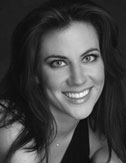
Claire Molloy, soprano, is a native of Grosse Pointe Farms, Michigan. A versatile performer, her repertoire includes Susanna in Le nozze di Figaro, Concepcion in L’heure espagnole, Miss Wordsworth in Albert Herring, Romilda in Xerxes, Ciesca in Gianni Schicchi, C̩lie in Signor Deluso, Lucy in The Telephone, Juno in The Judgment of Paris (Eccles), and the soprano in Side by Side by Sondheim. She earned her MM in Voice Performance from Florida State University and her BM and BBA from the University of Michigan. Ms. Molloy has sung with the Berkshire Opera’s Resident Artist Program, Ann Baltz’s OperaWorks, Eastern Festival Opera, and the Lirica Nacional de Costa Rica. She made her debut with One World Symphony as the Vixen in last spring’s production of The Cunning Little Vixen, performed Marguerite in scenes from Faust at this year’s Halloween concert, and Blanche in Dialogues of the Carmelites in January.

Allison Pohl is thrilled to return to One World Symphony after her company debut as Adele in last season’s production of Die Fledermaus. Originally from Long Island, Ms. Pohl made her professional debut as Barbarina in Le Nozze di Figaro with Boston Lyric Opera in 2007. Since then, she has appeared with many opera companies including Lake George Opera, Virginia Opera, and Opera New Jersey. Favorite roles performed include Frasquita in Carmen, Giannetta in L’elisir d’amore, Zerlina in Don Giovanni, Suor Genovieffa in Suor Angelica and Belinda in Dido and Aeneas. This spring Ms. Pohl will cover Rosina in Il Barbiere di Siviglia with Opera on the James in Lynchburg, Virginia. Ms. Pohl received her Bachelor of Music degree from SUNY Purchase Conservatory of Music and her Master of Music degree from Boston University.

Anne Marie Schubert returns to One World Symphony after performing as Nora in The New York Times reviewed production of Riders to the Sea and as Aufseherin in Elektra. She received her degree in vocal performance from the Benjamin T. Rome School of Music at The Catholic University of America. Some of her opera roles include Tatyana (Eugene Onegin), the Countess (Le Nozze di Figaro), Atalanta (Xerxes) and the Dew Fairy (Hansel and Gretel). Ms. Schubert made her Carnegie Hall debut in 2006 with the Pacific Opera Company and returned there in 2007. She has appeared with OperaOggiNY as Mrs. Gobineau in The Medium, La Zelatrice and the Maestra delle Novizie in Suor Angelica, and as Jean Gaussin in Sapho. She also appeared in OperaOggiNY’s winter gala as the soprano soloist in Handel’s Messiah.
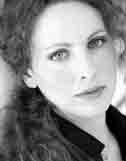
Gudrun Bühler is making her debut with One World Symphony. She holds a master degree from Manhattan School of Music in voice and has performed Opera and Lied in venues like the Baden-Baden Festspielhaus, Carnegie Hall, Muffathall (Munich), Karslruhe Opera House, Kaiserslautern Opera House and others. She appeared as Carmen from Carmen by Bizet, as Cherubino from La Nozze di Figaro by Mozart, as Wellgunde from Das Rheingold by Wagner, as Giorgetta from Il Tabarro by Puccini, as Mimi from La Bohème by Puccini and others. In April 2009 she will collaborate with the “Maia” String Quartet performing Schoenberg’s Op.10. She has appeared recently as the Merchant in Bertolt Brecht’s play The Exception and the Rule.

Soprano Adriana Lee is very excited to be joining One World Symphony this season. A graduate of Rutgers University and Brooklyn College, Ms. Lee has portrayed the roles of Olympia in The Tales of Hoffmann, The Queen of the Night in The Magic Flute, and Josabeth in the U.S. premiere performance of Handel’s Athalia. A regularly requested singer at Major League Baseball games, Ms.Lee has sung at Fenway Park, CitiField and Citizen’s Park.
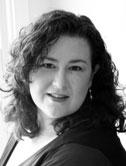
Soprano Mechelle Tippets has been hailed as a “bright-voice soprano” with a “powerful voice,” and returns to One World Symphony this season after performing Chrysothemis in Elektra and Echo in Ariadne Auf Naxos. She has performed as Gertrude Stein (Mother of Us All), Aunt Julia (Claudia Legare), Second Lady (Magic Flute), Donna Elvira (Don Giovanni), Miss Havisham (Miss Havisham’s Wedding Night), and Gertrude (Hansel and Gretel). She has performed with Opera Manhattan, One World Symphony, Dicapo Opera Theatre, Little Opera Company New York, Brooklyn Symphony Orchestra among others. As a concert soloist, Ms. Tippetss’ performances include Handel’s Messiah, Barber’s Andromache’s Farewell, Haydn’s Creation Mass, and Pergloesi’s Stabat Mater. She is a recipient of the Encouragement Award from Metropolitan Opera National Council Auditions. Ms. Tippets holds a bachelor’s degree in vocal music from Brigham Young University, and a master’s degree in Opera Performance from Longy School of Music in Cambridge, MA.
Friday, March 4, 2011
St. Ann and the Holy Trinity
Brooklyn Heights
Sunday, March 6, 2011
Church of the Holy Apostles
Manhattan

